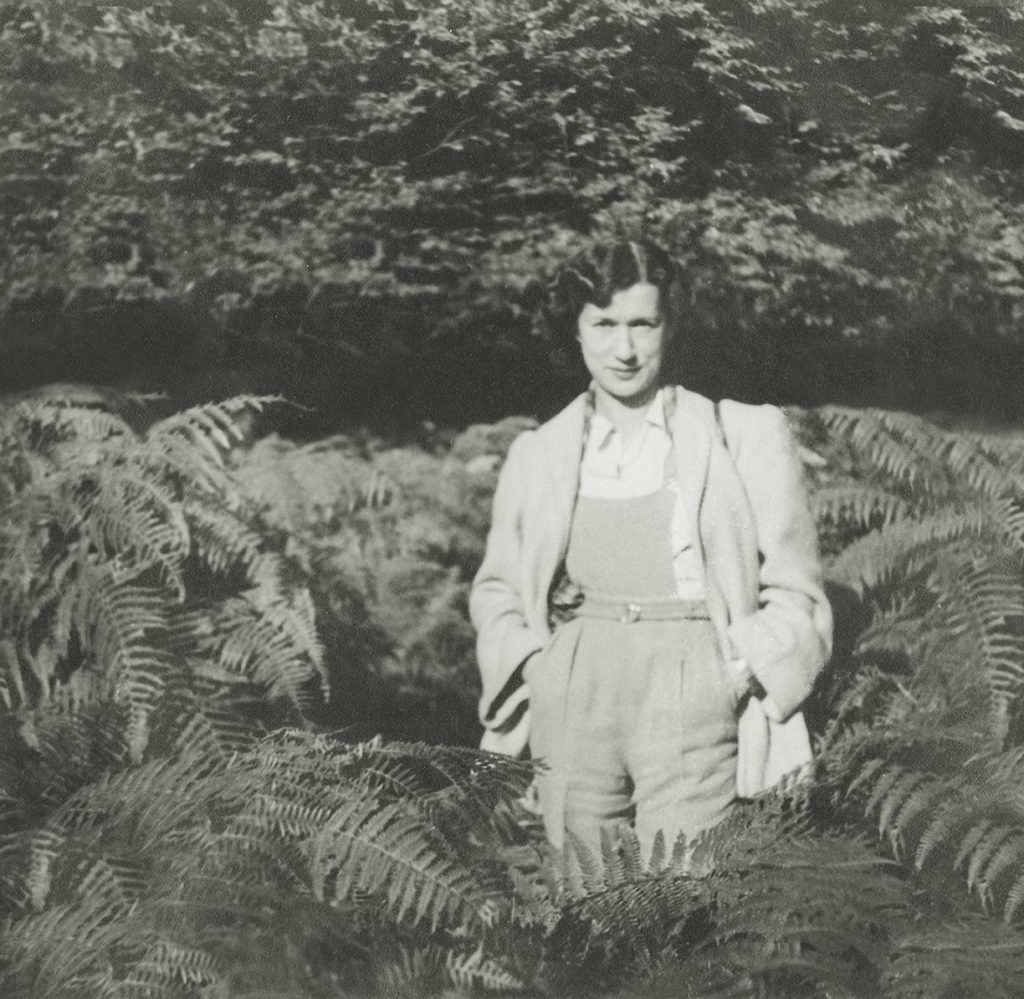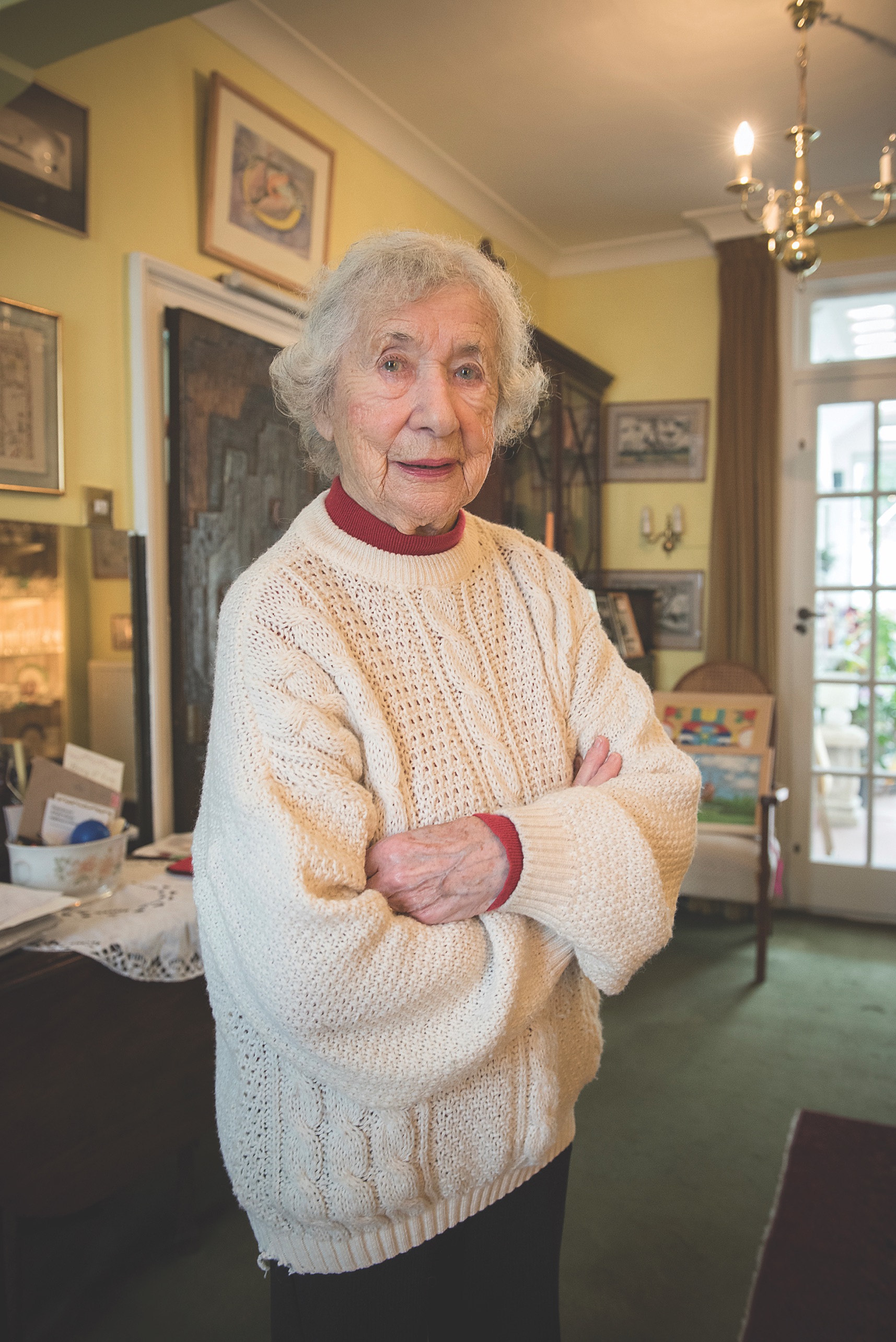In her debut memoir, “My Name is Selma,” Van de Perre recounts sabotaging the Nazis—and enduring the Holocaust.
For years, Selma van de Perre was “too busy living” to share her story with the world. She raised a son; taught schoolchildren in London; attended social functions with her husband, BBC correspondent Hugo van de Perre; and later worked as a journalist herself. But thanks in part to her remarkable memory, the former Dutch resistance worker and concentration camp prisoner—who turned 99 in June 2021—was at last able to write her memoirs. The result, My Name is Selma, was published in May.
Born into a Jewish family in the Netherlands, Selma Velleman was 17 when, in May 1940, Germany occupied her home country. She dodged deportation, hiding with Gentile friends and later—under an assumed name, Marga, and an identity as an Aryan nurse—joining a resistance group to aid other people in hiding. In 1944, her luck ran out; she was arrested and eventually imprisoned at Ravensbrück, the all-women concentration camp in northern Germany. She’d live to see the war’s end. Her mother and sister, shipped to Sobibor, and her father, sent to Auschwitz, would not.

How did life change after the German occupation?
They were very clever, the Germans. They didn’t want the Dutch people to be upset and fight against them, so they were careful to introduce measures very slowly. But then, of course, the rules came in that non-Jews were not to visit Jewish people, and Jewish people were not allowed to visit them; Jews were not to have things or be allowed lots of things. Life began getting very difficult.
When did you first realize you were in danger?
In 1942, when I was 20, I was called up to go to a work camp. My father said, “No, you don’t go,” and he gave me some chocolate that made me go to the toilet all the time. He called the doctor, who wrote me a note. I soon went to work in a fur factory, making gloves and things for German soldiers in the East. But then my father got his call-up to go to a work camp. I said to my mother, “We have to go into hiding.”
How did you get involved with the Dutch resistance?
Friends found me a hiding place in Leiden, southwest of Amsterdam, with doctors from Leiden Hospital; that was the first time I came into contact with the resistance. One evening they were telling us that they were short on volunteers, and I asked if I could help.
What was your role?
We had a lot of people by that time who had to be looked after while in hiding—not just Jewish people, but also non-Jewish university students who didn’t sign loyalty oaths to the Germans, or men who didn’t want to go to work camps. They had to have ration cards and false identity cards. So people were needed to become couriers and supply these things. I started by just sending out newspapers the resistance produced. But soon I began carrying suitcases filled with illegal papers to different towns.
Did you have any close calls?
Several times, yes. Once, I was transporting a suitcase on a train. I left to go to the toilet, and when I came back I thought I was in the wrong car because I didn’t see it. The woman sitting opposite me was still there, though. When we came to the next station, she screamed out the window: “This girl has lost her suitcase; it’s stolen!”
A German officer standing outside told me to get off, and he asked what was in the suitcase. I said underwear. He asked several more questions and was then called away. I saw my train leaving and jumped on it. When I had to change trains, the conductor asked, “Are you the girl who lost her suitcase? I think it’s been found.” He came with a little suitcase—one like mine—and he opened it and thank goodness it had underwear in it. After the war, we learned that my suitcase and its contents had been found in the river. A colleague in the resistance laughed, saying that the thief must have had a terrible shock when he opened it and found nothing but papers.
Eventually you did get caught.
A colleague said he’d make me some bookshelves with hiding places in them because keeping documents in the suitcase, which I kept under my bed, was too dangerous. One day in June 1944, another resistance worker brought the bookshelves to our colleague Bob’s house in Utrecht and showed me how the hiding spaces worked. The front door then opened, and there was Bob; he came upstairs with two German police. We were taken away separately in cars; I was put into a small prison cell with five other women and spent the night there. Soon I was sent with many others to a concentration camp, Vught, in the south of Holland and put to work in a gas mask factory. In September 1944, the women at Vught were transferred to Ravensbrück.
What was that like?
It was a big concentration camp for women, 50 miles northeast of Berlin. When we arrived, there were loads of female guards with dogs and police with whips and sticks. They shouted and they pushed; it was terrible. I was there for nine months. Many people died. They were gassed and burned.
We were liberated on April 23, 1945, by the Swedish Red Cross. We were weak, and so scared when we were taken out of the main camp and left standing outside the gates. We thought we were going to be killed, too, and it was a terrible feeling after all we’d experienced and survived.
Explain your book’s title.
When we arrived in Sweden, we had to stand in a queue to give our names to an attaché from the Dutch embassy. I gave the name I’d been using during the war—Marga—and he wrote that down. Then the women went to lie down, but I just couldn’t rest. I went back, and luckily the attaché was still there. I stood there a long time and finally said, “My name is actually Selma Velleman.” He took his pen out and didn’t say a word, but crossed the other name out and entered my own name. That’s why the book is called My Name is Selma.
You visit Ravensbrück each year. Why?
I have a workshop with German students. They are always very emotional; they’re very interested. I ask: “Do you ask your grandparents about the war?” And they all say, “Yes, but they don’t want to talk about it.”
What topic is most important?
How normal people, like their grandparents, could have supported the National Socialist German Workers’ Party. I always think, “How could they?” But it happens all over the world still, doesn’t it? People follow dictators before they know what’s going to happen.
They don’t come to power overnight.
No, they don’t. Then, once people want to rebel, it’s too late. ✯
This article was published in the August 2021 issue of World War II.





